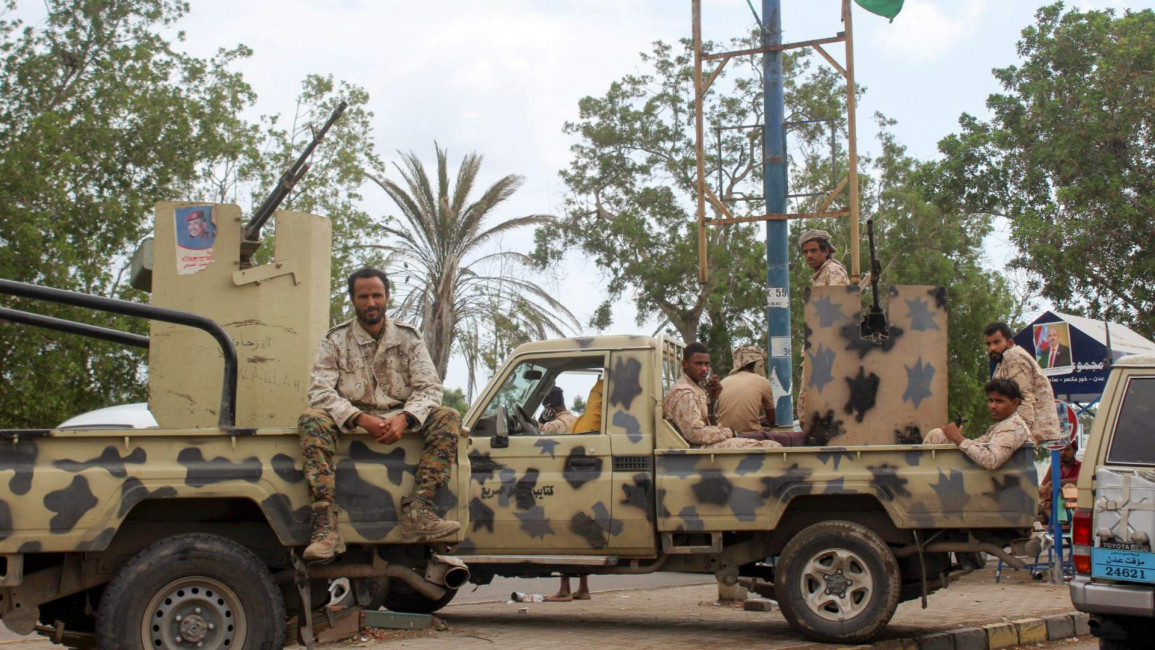Yemen urges action against UAE-backed forces after abducted journalist found with torture marks
Mukhtar al-Rahbi, an advisor to the minister of information, called for the "criminals who carried out this heinous crime be investigated and brought to trial".
The appeals came following the release of young journalist Aseel Suwaid, who was held by the UAE backed forced for a month and released in the Lahj governate on Friday without reason or accusation.
"The release of journalist Aseel Suwaid after being kidnapped by gangs and militias of the Security Belt," al-Rahbi announced on Twitter, sharing images that clearly show signs of torture on the young journalist's back and shoulders.
Al-Rahbi said that the journalist "was severely tortured by these militias".
Suwaid's brother, Osama described the released journalist's physical and psychological state as "bad" noting the level of torture he had received was "severe".
Suwaid had disappeared in early May en route the southern coastal city of Aden after leaving his home in Taiz, according to the International Federation of Journalists.
Twitter Post
|
"The disappearance of Suwaid indicates the continuation of a safety crisis faced by Yemeni journalists for years, which has raised the concern of the international journalist community," a statement at the time of his disappearance said.
The UAE-backed Security Belt, which have toggled control of the temporary capital Aden with government forces for several years, have been accused by human rights organisations of arbitrarily arresting and preventing citizens from northern governates from entering the coastal city.
The Security Belt belongs to the UAE-backed secessionists, Southern Transitional Council, which declared self-rule in the south on April 26.
Meanwhile, fighting between pro-government troops and separatist forces on the outskirts of Zinjibar, some 60 kilometres (35 miles) from Aden, has killed dozens since early May.
The main theatre of Yemen's war pitches an internationally recognised government, supported by a Saudi-led coalition, against the Iran-backed Houthi rebels.
Read also: Indepth: Yemen Aid: The NGO battling coronavirus in a war zone
The Houthis stormed the capital Sanaa in September 2014 and Aden was set up as the government's interim seat months later.
Tens of thousands of people, mostly civilians, have been killed in the country's war, which the United Nations views as the world's worst humanitarian crisis.
Follow us on Facebook, Twitter and Instagram to stay connected



